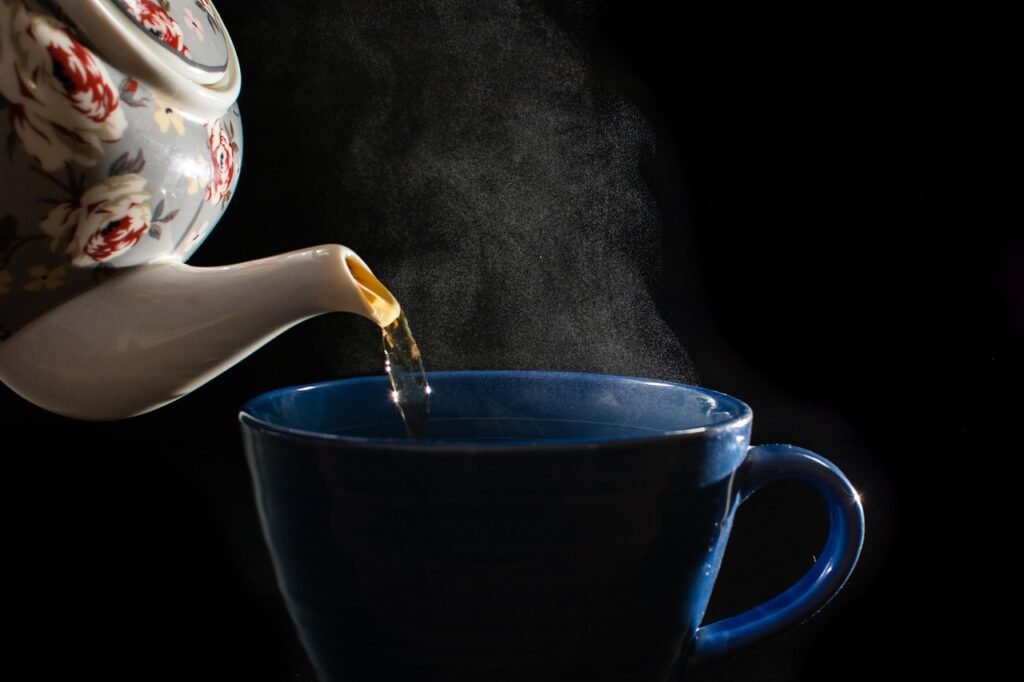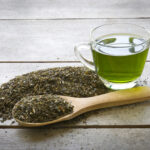
Overview
Coffee and tea, two of the world’s most beloved beverages, each come with a rich history, distinctive flavors, and unique health benefits. Whether you’re starting your day with a strong cup of coffee or winding down with a soothing tea, both drinks offer a variety of perks. But when it comes to choosing one over the other, which is truly better? This guide explores the pros and cons of each, diving into their health benefits, caffeine content, and key differences to help you make an informed choice
Table of Contents
Understanding Coffee and Tea
Coffee is derived from roasted coffee beans, which are the seeds of berries from the Coffea plant. It has a bold, rich flavor profile that varies by roast and origin. Tea, made from the leaves of the Camellia sinensis plant, includes a range of types: green, black, white, and oolong. Each type has a unique flavor and set of benefits, influenced by factors like processing methods and growing conditions
Related : Top 10 Causes of Blood Sugar Swings and How to Manage Them
Types of Coffee
- Espresso: A concentrated form of coffee with a strong flavor, often used as the base for other drinks like lattes and cappuccinos.
- Americano: Made by adding water to espresso, resulting in a lighter flavor and larger serving.
- Cold Brew: Created by steeping coffee grounds in cold water for several hours, producing a smoother, less acidic taste.
- French Press: Coffee grounds are steeped in hot water, then separated by pressing a plunger, leading to a full-bodied cup
Types of Tea
- Green Tea: Known for its light, grassy flavor and high antioxidant content, green tea is minimally processed.
- Black Tea: Fully oxidized, black tea has a robust flavor and higher caffeine content than other teas.
- White Tea: Made from young tea leaves, it has a delicate flavor and retains a high level of antioxidants.
- Herbal Tea: Technically not a “tea” (since it doesn’t contain tea leaves), herbal teas include infusions like chamomile, peppermint, and hibiscus, offering unique benefits and usually being caffeine-free
Related : How to Get Rid of a Cold Fast
Health Benefits of Coffee

Coffee has a wealth of antioxidants and bioactive compounds that contribute to its health benefits. Here are some of the ways coffee can boost your well-being:
- Rich in Antioxidants: Coffee is a significant source of antioxidants, particularly chlorogenic acid, which can help reduce inflammation and oxidative stress. These antioxidants work to neutralize free radicals, potentially lowering the risk of various diseases.
- Boosts Mental Alertness and Focus: Caffeine, coffee’s primary stimulant, improves concentration and reaction times. For many, coffee serves as a productivity aid, enhancing focus for tasks that require mental effort.
- Promotes Heart Health: Some studies suggest that moderate coffee consumption can support heart health by improving blood vessel function and reducing arterial stiffness. Antioxidants in coffee also play a role in lowering inflammation, which is beneficial for cardiovascular health.
- Potential for Diabetes Prevention: Regular coffee drinkers may have a lower risk of Type 2 diabetes. This may be due to coffee’s ability to enhance insulin sensitivity and improve glucose metabolism.
- Protective Effects Against Neurodegenerative Diseases: Research indicates that coffee drinkers may be at a lower risk of developing Alzheimer’s and Parkinson’s diseases, possibly due to caffeine and other bioactive compounds.
- Possible Cancer Prevention: Coffee contains compounds that have been shown to have protective effects against certain cancers, particularly liver and colorectal cancers.
Health Benefits of Tea

Tea, especially varieties like green and black tea, is known for its wealth of polyphenols, which have numerous health-promoting effects:
- Promotes Relaxation and Reduces Stress: Tea contains L-theanine, an amino acid that promotes relaxation without drowsiness. This helps create a calming effect that can counterbalance caffeine’s stimulating qualities, particularly in green tea.
- Supports Heart Health: Flavonoids in tea are associated with improved cardiovascular health. They work by reducing blood pressure, lowering LDL cholesterol levels, and reducing inflammation, all of which support heart function
Related : Superfoods for Your Bones to Bone Health
- Aids in Weight Management: Green tea, in particular, is known for its ability to boost metabolism and promote fat oxidation. Compounds like EGCG (epigallocatechin gallate) in green tea contribute to these weight management benefits.
- Reduces Cancer Risk: Catechins in green tea, powerful antioxidants, have been linked to a reduced risk of several cancers, including breast, prostate, and colorectal cancers. They work by reducing oxidative stress and neutralizing free radicals.
- Boosts Immune System: Tea, especially herbal varieties, is packed with antioxidants, antibacterial, and antiviral compounds that can help strengthen the immune system. Herbal teas like echinacea and ginger are particularly beneficial for supporting immune health.
- Improves Digestive Health: Herbal teas, including peppermint and ginger, are known for their soothing effects on the digestive system, helping to reduce bloating, nausea, and indigestion
Comparing Caffeine
One of the key differences between coffee and tea is their caffeine content, which can influence your choice based on your energy needs and tolerance levels.
- Coffee: A typical 8 oz cup contains around 95 mg of caffeine, although this can vary significantly depending on the brewing method and type of coffee bean.
- Tea: Caffeine content in tea varies by type:
- Black Tea: 40-70 mg per cup
- Green Tea: 20-45 mg per cup
- White Tea: 15-30 mg per cup
- Herbal Tea: Generally caffeine-free
If you’re sensitive to caffeine or prefer a milder energy boost, tea may be the better option. Conversely, if you need a strong kick to start your day, coffee is likely the way to go.
Potential Downsides
Coffee
- Digestive Issues: Coffee is acidic, which can lead to digestive discomfort for some, especially those with acid reflux or ulcers.
- Addiction and Withdrawal: Habitual coffee drinkers may experience dependency, and withdrawal symptoms like headaches, fatigue, and irritability can occur if intake is suddenly reduced.
- Sleep Disruption: Coffee’s high caffeine content can interfere with sleep if consumed later in the day.
Tea
- Iron Absorption: Tannins in tea can interfere with iron absorption. To minimize this effect, it’s best to drink tea between meals, rather than with iron-rich foods.
- Fluoride Exposure: Some teas, particularly lower-quality black teas, can contain higher levels of fluoride, which may impact dental and bone health over time
Choosing Between Coffee and Tea
When deciding between coffee and tea, consider factors like your health goals, caffeine sensitivity, and flavor preferences. Here’s a breakdown of which beverage might suit you better based on various factors:
- For a Quick Energy Boost: If you need an immediate pick-me-up, coffee’s high caffeine content makes it the go-to choice.
- For Sustained Focus and Calm: Tea, with its combination of lower caffeine and L-theanine, provides a more balanced energy boost and is less likely to cause jitters.
- For Heart Health: Both coffee and tea offer heart health benefits, but tea’s flavonoids have a stronger association with cardiovascular health.
- For Weight Management: Green tea is particularly effective for boosting metabolism and promoting fat oxidation, making it a popular choice for those looking to manage weight.
- For Cancer Prevention: While both drinks contain antioxidants, green tea is particularly rich in catechins, which may help protect against several types of cancer.
Tips for Enjoying Coffee and Tea
- Limit Added Sugar and Creamers: Both coffee and tea can become high-calorie drinks if loaded with sugar and cream. For a healthier choice, use natural sweeteners like honey or milk alternatives.
- Balance Caffeine with Water: Caffeine can be mildly dehydrating, so ensure you drink plenty of water alongside coffee or tea to stay hydrated.
- Experiment with Different Types: Explore various types of coffee roasts and tea blends to find flavors you enjoy and discover unique health benefits
The Takeaway
Choosing between coffee and tea doesn’t have to be an either-or decision. Both beverages have their own sets of benefits and can be enjoyed as part of a balanced, healthy lifestyle. If you’re looking for a quick energy boost and mental alertness, coffee is ideal. If you prefer a gentler lift with added relaxation, tea may be the better fit. Ultimately, the right choice depends on your personal health goals, caffeine tolerance, and taste preferences. So whether you’re a dedicated coffee lover, a tea enthusiast, or enjoy both, savoring these drinks mindfully can enrich your wellness journey
Frequently Asked Questions
- Which is healthier, coffee or tea?
Both coffee and tea offer health benefits, but they differ in their specific advantages. Coffee is rich in antioxidants that can boost mental alertness, support heart health, and may reduce the risk of Type 2 diabetes. Tea, especially green and black varieties, contains polyphenols that promote heart health, help with weight management, and support immune health. Choosing between them depends on your health goals and caffeine tolerance.
- Does coffee or tea have more caffeine?
Generally, coffee contains significantly more caffeine than tea. An 8 oz cup of coffee has about 95 mg of caffeine, while black tea contains 40-70 mg, and green tea contains 20-45 mg. Herbal teas are typically caffeine-free, making them a good option for those sensitive to caffeine or looking to avoid it.
- Can coffee and tea help with weight loss?
Yes, both coffee and tea can aid in weight management, but in different ways. Green tea, in particular, is known to boost metabolism and promote fat burning due to its high EGCG content. Coffee can also support metabolism, especially when consumed without high-calorie additives. However, moderation and a balanced diet are key.
- Is it safe to drink coffee or tea every day?
Yes, moderate daily consumption of coffee and tea is generally safe for most people and can provide health benefits. However, excessive coffee intake can lead to dependency and may cause sleep issues, while high amounts of tea can affect iron absorption. It’s best to consume both beverages mindfully and limit added sugars and creamers.
- Can I drink coffee and tea together in the same day?
Yes, many people enjoy both coffee and tea in a single day. Since they offer different benefits and caffeine levels, you can balance them based on your energy needs. Just be mindful of your total caffeine intake, especially if you’re sensitive to it.
- Which is better for relaxation, coffee or tea?
Tea, particularly herbal and green varieties, is better for relaxation due to its lower caffeine levels and the presence of L-theanine, an amino acid that promotes calmness. If you’re looking to unwind, a cup of tea is usually the better choice compared to coffee, which has a stimulating effect












